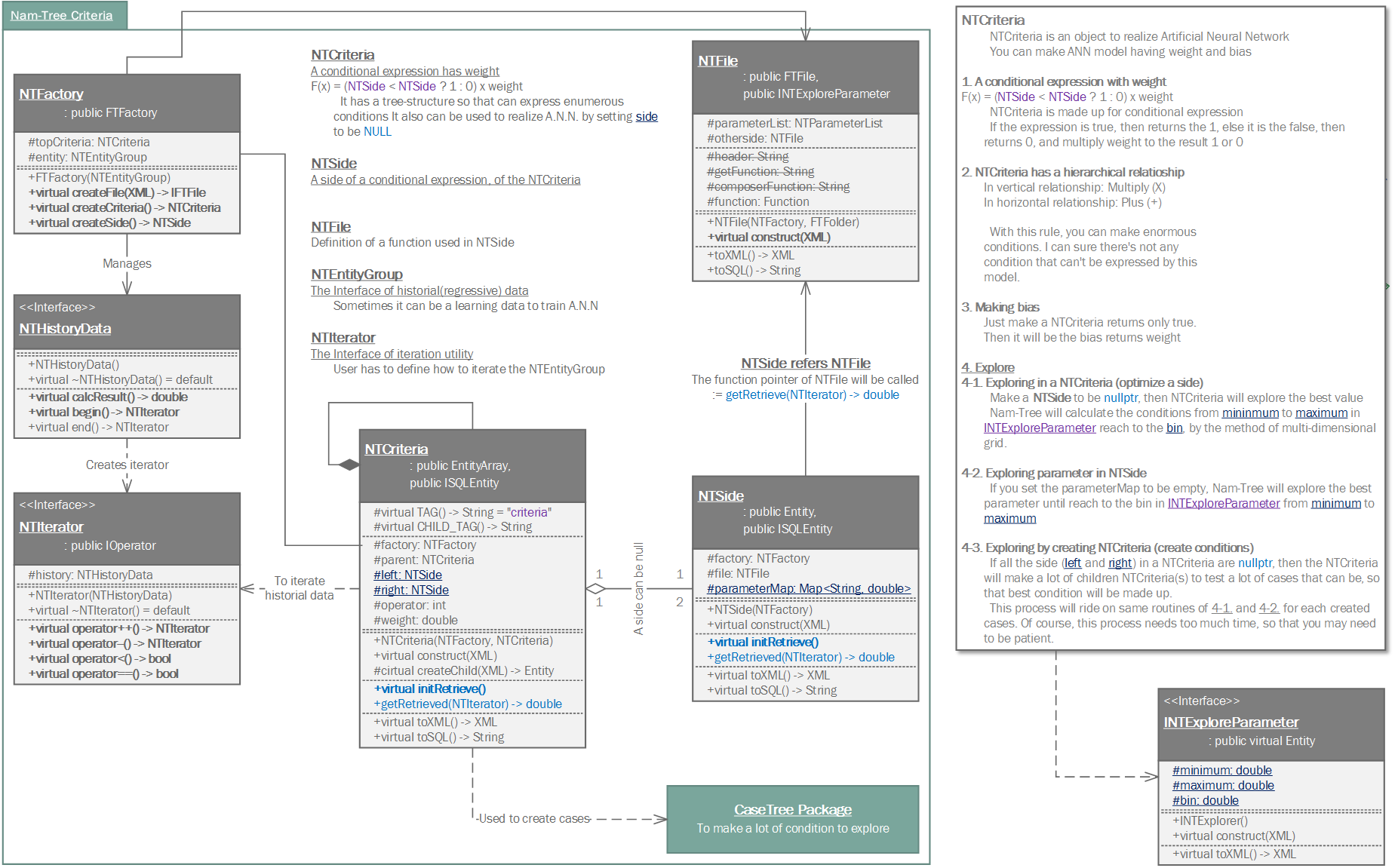|
Samchon Framework for CPP
1.0.0
|
|
Samchon Framework for CPP
1.0.0
|
A historical, studying data. More...
#include <NTEntityGroup.hpp>
Public Member Functions | |
| NTEntityGroup () | |
| Default Constructor. More... | |
| virtual auto | begin () const -> std::shared_ptr< NTIterator >=0 |
| Return iterator to beginning. More... | |
| virtual auto | end () const -> std::shared_ptr< NTIterator >=0 |
| Return iterator to end. More... | |
A historical, studying data.
NTEntityGroup is an abstract class representing historical, regressive data
The NTEntitGroup is used to studying data evolving and training NTCriteria, representing Artificial neural network.

Definition at line 26 of file NTEntityGroup.hpp.
| NTEntityGroup::NTEntityGroup | ( | ) |
Default Constructor.
Definition at line 6 of file NTEntityGroup.cpp.
|
pure virtual |
Return iterator to beginning.
Returns an iterator referring the first element in the historical data container.
An iterator to the first element in the container.
The iterator containes the first element's pair; key and value.
|
pure virtual |
Return iterator to end.
Returns an iterator referring to the past-the-end element in the historical data container.
The past-the-end element is the theoretical element that would follow the last element in the NTEntityGroup container. It does not point to any element, and thus shall not be dereferenced.
Because the ranges used by functions of the NTEntityGroup do not include the element reference by their closing iterator, this function is often used in combination with NTEntityGroup::begin() to specify a range including all the elements in the container.
Returned iterator from NTEntityGroup::end() does not refer any element. Trying to accessing element by the iterator will cause throwing exception (out of range).
If the container is empty, this function returns the same as NTEntityGroup::begin().